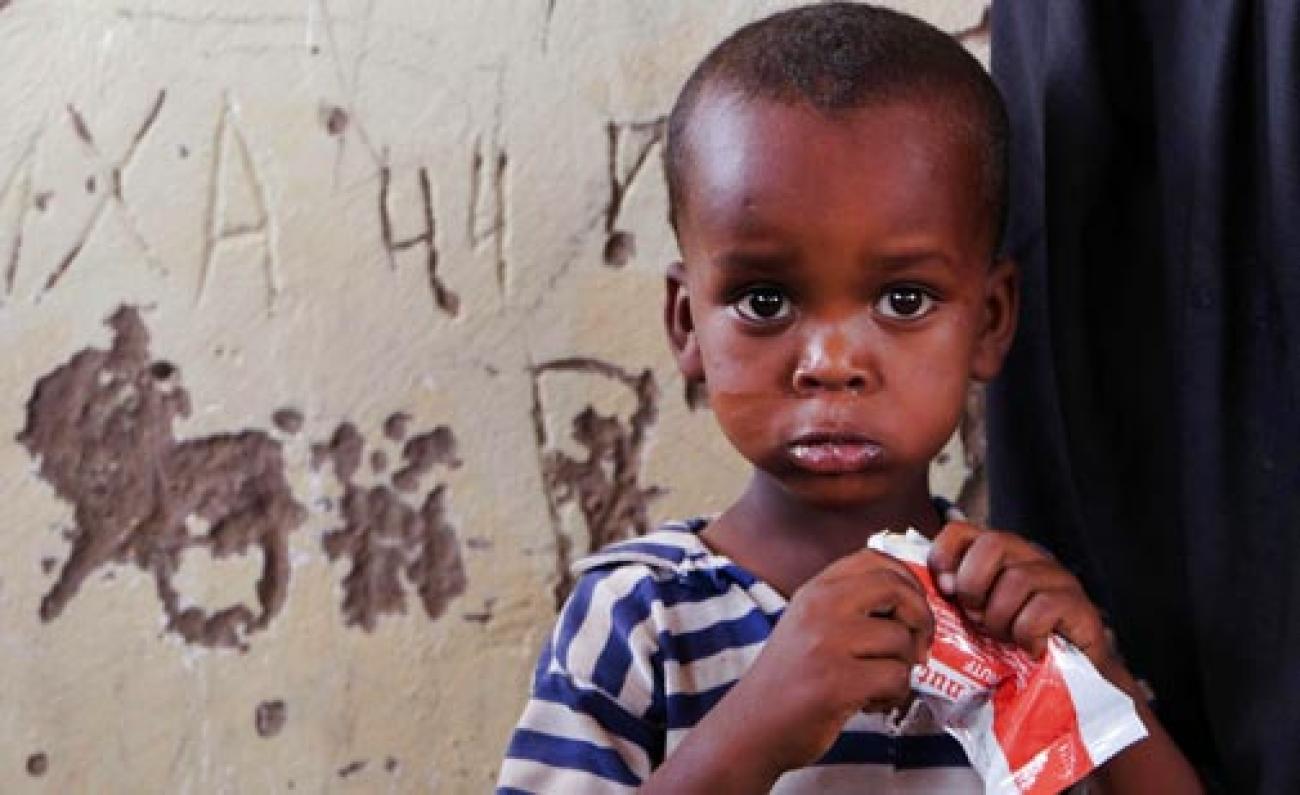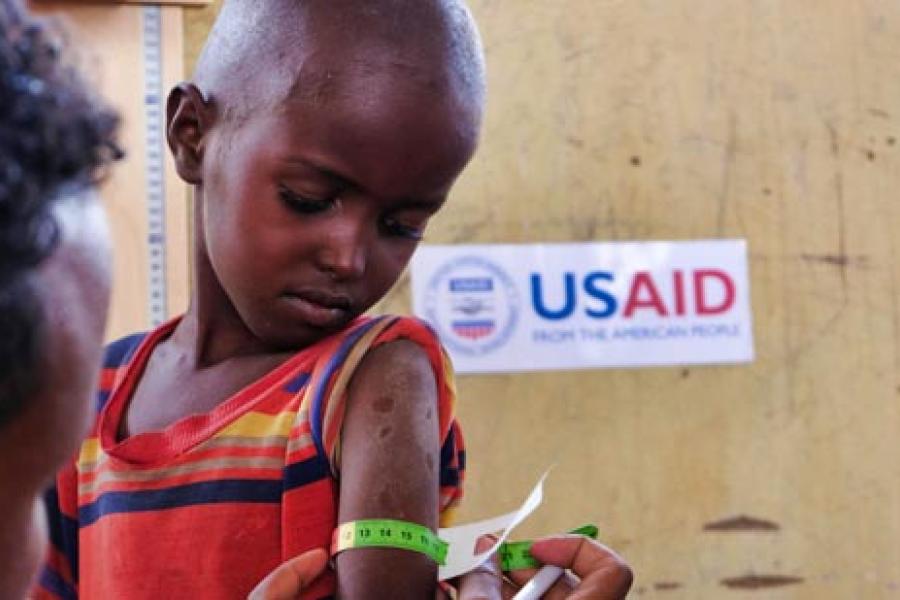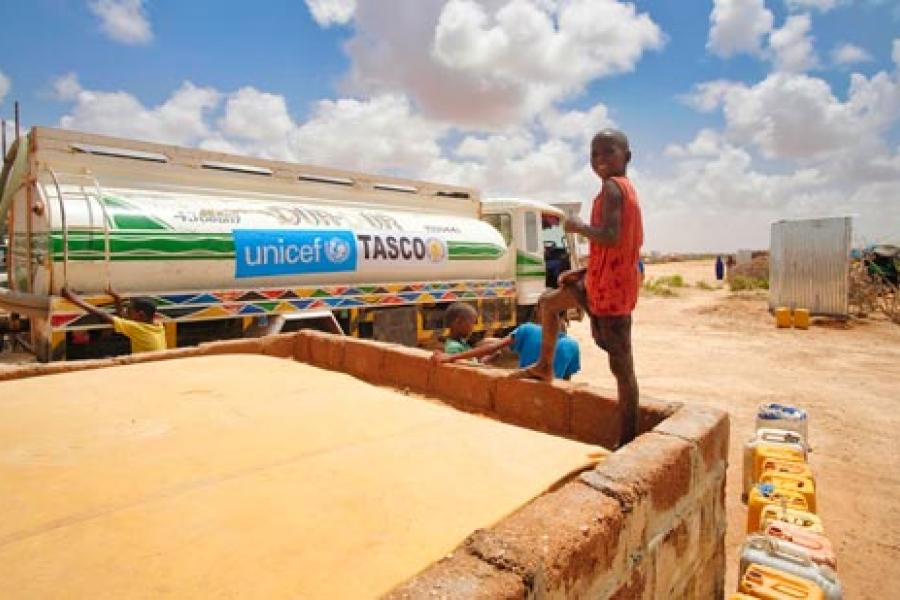As drought worsens in Somaliland, UNICEF and partners scale up support to children

Even in a region where drought and climatic shocks are an all-too-regular occurrence, 2019 has already been particularly challenging for children and families.
By Jamal Abdi Sarman, UNICEF Communication Officer
AINABO, Somaliland, 13 May 2019 – Even in a region where drought and climatic shocks are an all-too-regular occurrence, 2019 has already been particularly challenging for children and families in Somaliland.
As you descend through the Sheikh mountains on the drive from Berbera, on the Gulf of Aden, to Burao, in the Togdheer region, and on to Ainabo in Sool region, the landscape becomes increasingly dry and dusty, and goats and camels - usually a common sight along the roadside - become few and far between.
Recent analyses show that rainfall levels so far this year have been among the driest on record with current conditions worse than in the same period of 2017, when a devastating drought saw animals die, crops fail and a huge exodus of people from their homes to makeshift camps in desperate search of assistance. Whilst a sustained humanitarian effort averted the risk of famine, many of the communities affected have had little or no opportunity to adequately recover.
With the cyclical nature of these crises, UNICEF has been working with partners and the local authorities to mitigate risks, increase family’s resilience as well as address critical immediate needs of affected communities.
Earlier this year, an inter-agency drought assessment report revealed that affected families living in Toghdeer, Sool and Sanag regions are already facing severe water shortages, widespread loss of the livestock that provides the lifeblood of many communities, and more and more families are being forced to leave their homes in search of food, water and pasture for their remaining animals.
“We have already lost more than 100 goats in the past three months,” said Halimo Abdi, just one of dozens of mothers receiving support at a UNICEF-supported mobile nutrition clinic for displaced families in Ainabo. “I have eight children. When we left I had to choose four of the younger ones - who were most vulnerable - and traveled to this camp to seek support.”
Halimo’s son Ahmed, who is three-years-old, is receiving nutrition support for severe acute malnutrition, thanks to the support of donors such as USAID.

For families displaced to informal camps such as Ainabo, UNICEF is also working with local partners to provide water-trucking to affected populations to ensure sustained access to safe water and help prevent disease outbreaks.

Omar Jama Farah is the Executive Director of Takuulo Somaliland Community (TASCO), a national NGO and UNICEF partner that is implementing WASH activities across Eastern regions of Somaliland.
“We’re really seeing increased signs of desperation, many water points in the eastern regions are drying up, community’s animals are increasingly becoming weak and many families are moving to urban centres with the aim of accessing any form of support,” Farah said. “The support of UNICEF and donors is crucial in helping us work with relevant government agencies to support affected communities.”
This lack of food and water, as well as the movement of people that results, is also increasing the numbers of children who aren’t able to go to school, as children drop out to help at home, or as families move in search of food and water. To combat this, UNICEF is working to ensure that schools and education facilities have access to safe water, as well as working with WFP, who provide food and nutrition support.
UNICEF is increasing integrated health and nutrition services particularly through joint mobile health and nutrition teams which are carrying out emergency vaccinations and providing hygiene kits. Emergency health supplies, including Diarrhoeal Disease Kits are also being provided.
Funds have been generously provided by donors, including UK AID through the UK Department for International Development (DfID); the European Commission’s Humanitarian Aid department (ECHO), the United States Office of Foreign Disaster Assistance (OFDA) for life-saving services in health, education, water and sanitation.
Link to original story.

